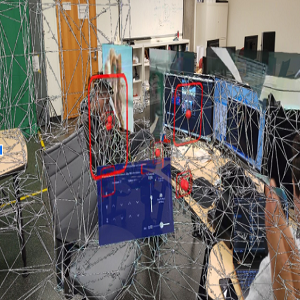
College of Engineering Unit:
The manufacturing and construction sectors are experiencing what is known as the “Industry 4.0 Revolution”. As robotic devices become more mechanically dexterous and sensory devices become more accessible, information technology is making many tasks which have been traditionally done by humans automatable. However, there is a gap in the knowledge between research in the field of industry 4.0 and cognitive augmentation; Current Cyber-Human Systems (CHS) are not optimized for enhancement of human capabilities by curating information according to cognitive needs. In other words, these systems are not currently situated to enhance human capabilities via the effective augmentation of human cognition through the mitigation of mental workload. Accordingly, there is an urgent need to explicitly define how CHS can interact effectively with the human worker to best augment and support them in their job duties. Failure to address this will incur drastic socioeconomic consequences due to the rapid pace of Industry 4.0; the forthcoming informatization of work is set to massively disrupt the labor market due to the rapid shifts in the allocation of human work.
Our central working hypothesis is that relevant cognitive bottlenecks can be systematically identified and addressed by an intelligent cognitive architecture that receives input from XR hardware, biometric sensors, workplace data monitors, and intelligent machinery, and that this information can be leveraged to achieve effective human augmentation. As such, our project is about designing and developing a Mixed Reality SW tool informed by a machine learning component to support inspection activities. Through intelligent systems, we can track things like gestures, and eye movements that could make augmented and mixed reality environments more effective. Furthermore, the intelligent SW component will help workers by gathering information and making contextual decisions of which content needs to appear in specific circumstances. Our project aims to support workers in an industry 4.0 setting where the cognitive load of repetitive tasks, such as inspection activities, can be eased by an informed machine learning component.
Project Communication Piece(s):
| Attachment | Size |
|---|---|
| 1.13 MB |